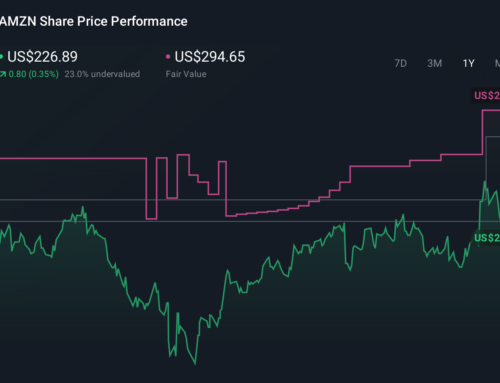Investing in Wellness in the Music Community Is Not Only the Right Thing to Do, It’s Good
May 30, 2025
In 2019, I signed a band called The Marias to my label, Nice Life. Also in 2019, after years of hard work and patience, Nice Life artist Lizzo would crash onto the world stage. But in less than a year, my world — our world — would start to unravel.
In the summer of 2020, at the height of the pandemic’s grip on all things, I was crippled with fear and anxiety; isolated with an ever-shrinking sense of hope that things would ever get better. Like just about everyone else in the music business, I started a weekly livestream. Very original. In partnership with my label, Nice Life, the goal of these Thursday night online get-togethers was to be able to, as we put it, “scream into the void,” only where someone might actually respond. The results were overwhelming. Almost overnight, we cultivated a small but vibrant community and raised tens of thousands of dollars for mutual aid programs in Los Angeles and across Native American reservations in the Southwest. Most of all, we felt connected. We had fun. I felt my creativity surge. I was reminded why I started a career in music.
In addition to my wife, Laura, and my team at Nice Life, there was another silent partner in my corner that helped shepherd me through the pandemic. She has helped me ride out the waves of this industry’s pummeling volatility for over 10 years. She has also helped me find contentment, presence and joy at deeper levels than I thought imaginable. Yes, I’m talking about my therapist.
Trending on Billboard
If you’re doing an hour-long eye roll right now, please proceed. But let me tell you that I’m not here to preach “wellness” to a community that is already well aware of its benefits. I’m here to make the case that it’s time the music business, big companies especially, begin to make a major financial investment in the mental well-being of our artists, songwriters and staff.
2020 shone a light on so many inequities across the socioeconomic spectrum and highlighted for me, personally, just how privileged I was to have the financial means to tend to my mental wellbeing. Having been an active touring artist myself for over 10 years, I was now watching the artists signed to my own label and those around them suffer greater challenges during the pandemic than I had experienced even in my lowest points.
This led to Nice Life introducing a concept that is now a pillar of our agreements and a pillar of our company and culture: The Wellness Fund. We decided that all of our artists and songwriters would have The Wellness Fund included in each term of their deal as a non-recoupable $5,000 fund to pay for any form of care that contributes to their well-being. It can go towards therapy, exercise classes, exercise equipment, yoga, massage, energy work, and anything that could contribute to their mental and physical well-being. It is also 100% confidential, with billing for these items going around the leadership team directly to HR.
For many of our artists and songwriters, this program would lead them to finally take the step to seek help for all the challenges they experience navigating this often brutal industry. They could show up more fully. They could enjoy the process. I can say that for me, also, as a songwriter and producer, when I’m feeling grounded and emotionally centered, I write more compelling songs and take chances in my productions. I’m confident, I’m courageous.
Seeing how much this initiative was doing for our artists, we decided to implement the same program for our staff. After all, it is all the amazing, creative, hardworking people at music companies who carry us in the studio on their backs. They are responsible for turning our ambitious and ever-shifting ideas into reality. For our employees, they have three years from their hire date to use the fund, and then it re-ups another $5,000 every 2 years thereafter.
If I haven’t convinced you already, let’s try a version of a familiar scenario we’ve all seen play out. An artist loses a big opportunity. This pushes said artist’s bad day over the edge, and they take it out on their manager. The manager is flustered and heads right into a weekly call with the label where they snap on their A&R, who gets off the call and is rude to the overworked product manager who walks down the hall and says something passive aggressive to the young marketing coordinator who goes home and feels like s—.
Now, we don’t know what sort of financial state each member of this team is in. We also don’t know what they’re all going through personally. But what if that marketing coordinator is up to their neck in college loan payments? What if that artist didn’t hire a business manager before they unknowingly blew through their advance? What if every member of our team had a baseline level of support to ensure they were enjoying their lives and, as a result, doing their best work?
It’s time we all agree to pool together our resources to ensure that our most vulnerable in the music industry have the support to get the help they need to keep themselves well. It’s a small price to pay for better music, better communication and a better quality of living. We’ve had recipients of our program say it changed their lives.
If our small independent label can pull this off, tell me: What’s stopping you?
Ricky Reed is a Grammy Award-winning, multiplatinum-selling producer, artist, and music executive. He is the founder and CEO of independent record label Nice Life Recording Company (Lizzo, The Marías and Tinashe), and under the Nice Life Recording Company, Ricky also has a publishing arm of the company, which is home to producers and songwriters (Nate Mercereau, Zack Sekoff, Alex Vickery, and more). Nice Life Recording Company artists have collected Grammy Awards, billions of global streams, and gold and platinum certifications worldwide, among other accolades.
Search
RECENT PRESS RELEASES
Related Post



